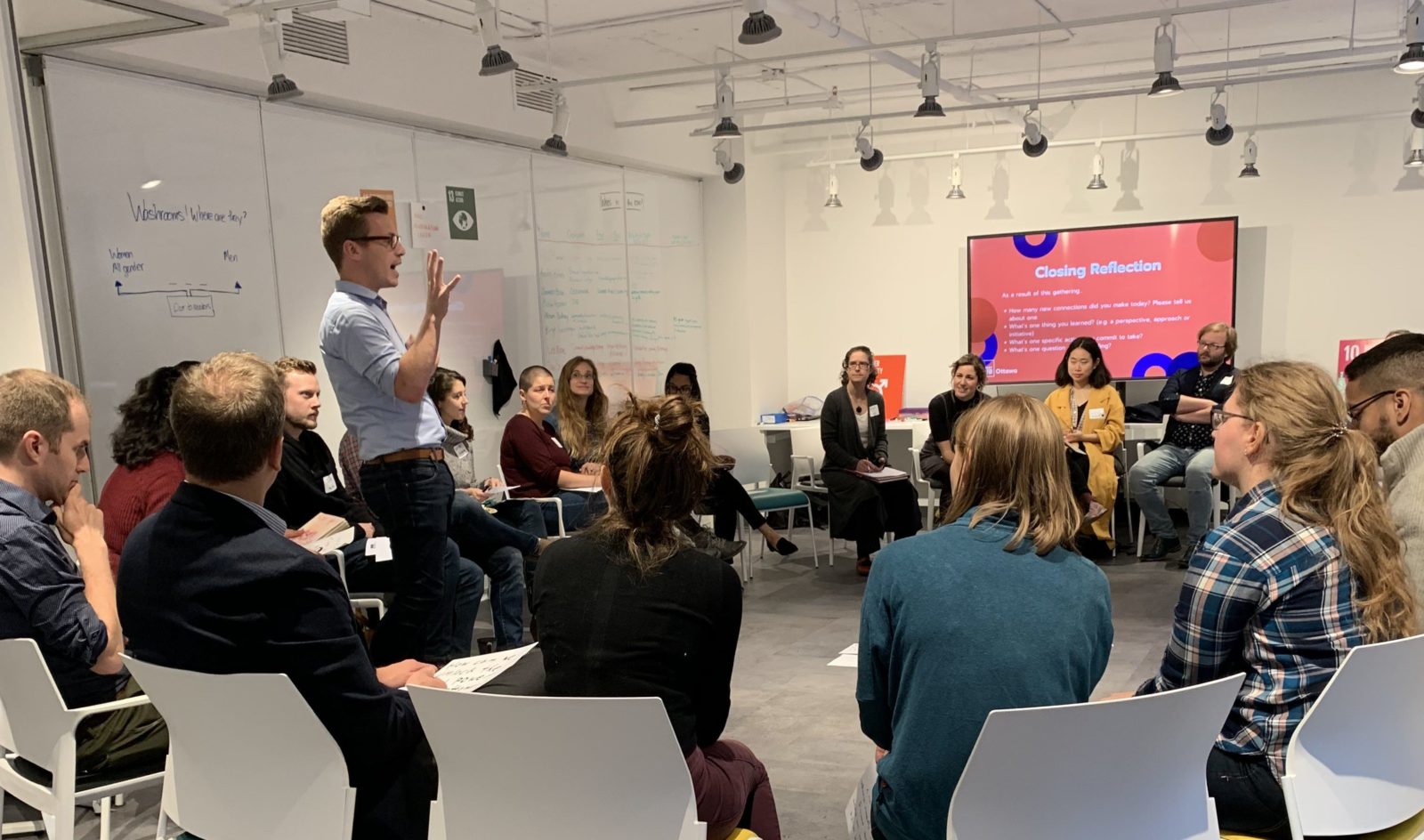
Reflections on Collaboration for Social Change
In the fall of 2019, Impact Hub Ottawa and Community Knowledge Exchange, in partnership with Living Tapestries, brought together leaders and change-makers in Ottawa for a series of workshops exploring the role of collaboration in advancing outcomes related to the Sustainable Development Goals (SDGs).
This is an excerpt from the second in a series of two posts that share reflections and lessons learned from this project, which was made possible by the generous support of the Ottawa Community Foundation.
Find the full post on CKX Fieldnotes!
I recently had the opportunity to work with the team at Impact Hub Ottawa to co-host a series of workshops for leaders who were exploring ways to better collaborate in order to advance outcomes related to the Sustainable Development Goals. While many of the participants were working towards similar goals and outcomes, the sessions provided an opportunity for participants, who came from a range of sectors, to share and explore some of the challenges that they faced in their collaborations or partnerships.
Many of the frustrations that emerged were pretty obvious to anyone that is working in partnership: conflicting agendas, competing priorities, turf wars, lack of capacity, personality conflicts, access to data, resources or other skills. We’ve all been in situations like this, In fact, you might actually be experiencing this right now.
We can also likely recognize our default responses to these situations. We might vent. Be quick to dismiss. To hold our ground. To walk away.
But what if your first response was to take a moment and reflect?
Reflection and reflective practice are key approaches to our work at CKX. We believe that reflection is an important form of action to advance social change. We work with leaders and communities through our charitable programs and our Design + Facilitation practice to seed and nurture more intentional spaces and resources for this type of work.
A simple definition of reflective practice is the ability to reflect on one’s actions so as to engage in a process of continuous learning.* This involves paying attention to the practical values and theories which inform everyday actions. Reflective practice is —at its most powerful — reflexive, enabling a shift in our perspective to see from a new vantage point. To see our own biases, positionality, agency, culpability, responsibility and unique gifts.
Why is reflective practice important? Because experience alone does not necessarily lead to learning — deliberate reflection on that experience is essential.**
Reflective practices can take many forms. They can be structured or unstructured, individual or collective, episodic or ongoing. Writing in a journal, a team debrief after an event, going for a walk and thinking about an experience are all forms of reflective practice. Sometimes it’s helpful for these reflections to be guided through a process, tool or exercise. I’d like to share three such guided practices that have become invaluable to me in my own work on collaboration.
Read the full story at CKX Fieldnotes!
This project was made possible by the generous support of the Ottawa Community Foundation.
